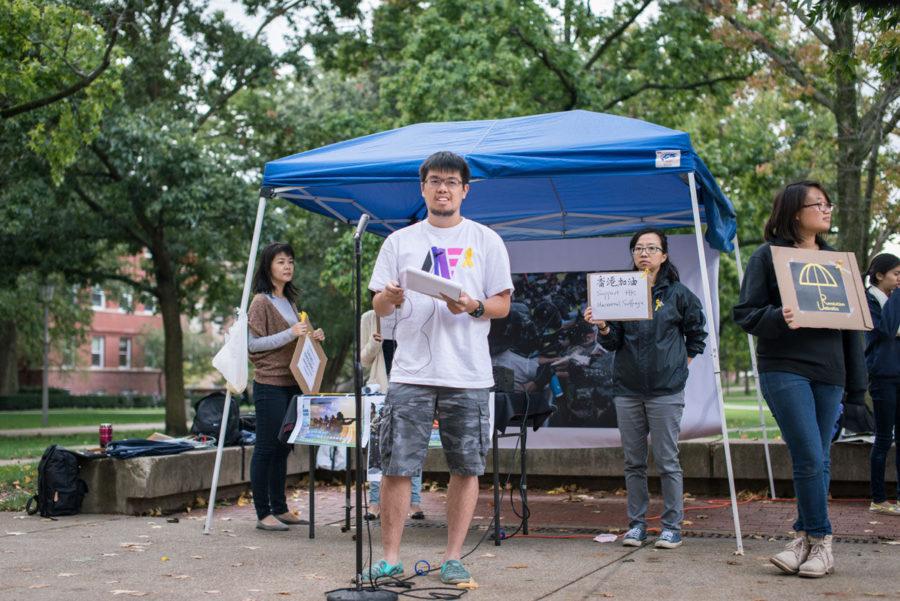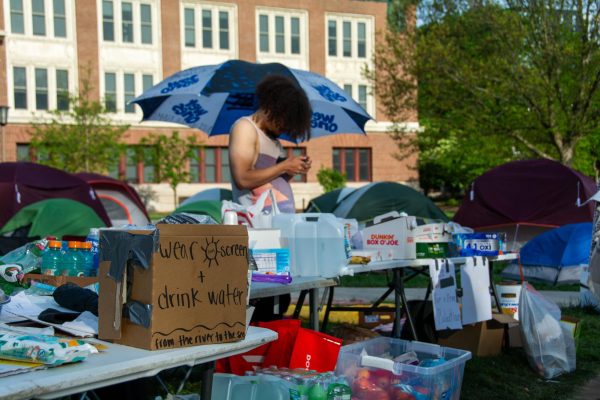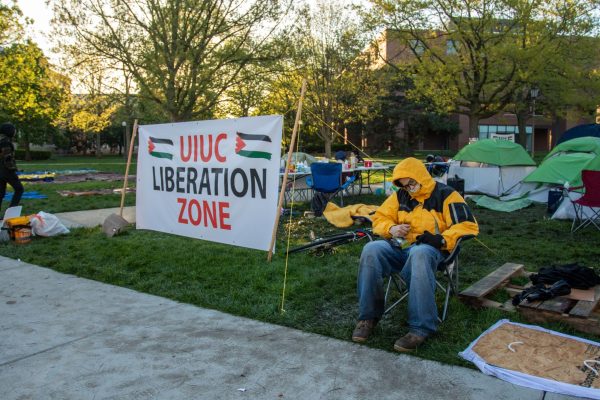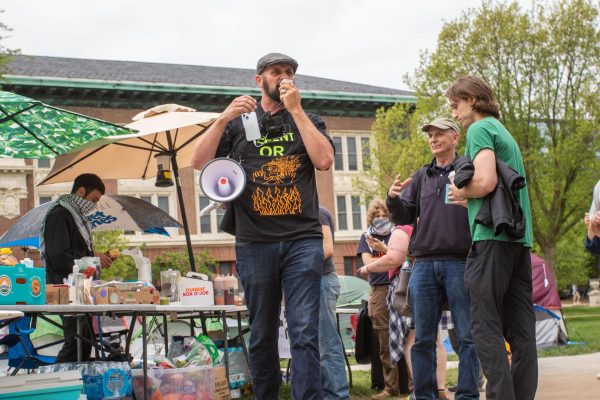University students rally for Hong Kong
Phillip Louie, junior in Engineering, gives a speech describing Hong Kong’s path to democracy and how that path is being threatened today in front of the Union on October 3rd, 2014.
October 6, 2014
University students gathered on the Quad and chanted “Give true democracy to Hong Kong” as part of a rally meant to show solidarity with pro-democracy protestors in Hong Kong. A booth was set up in front of the Illini Union displaying a large photograph of police officers spraying protestors with pepper spray.
The group of supporters handed out fliers and yellow ribbons, which represent the official color of many suffrage organizations, and had conversations with passing University students.
Priscilla Tse, graduate student in LAS and organizer of the rally, said the purpose of the rally was to support those currently protesting for universal suffrage in Hong Kong, and to “condemn brutal and unnecessary force” used by police officers toward the protestors.
“When I was watching an on-air video of the protest, I felt like I was there although I’m not physically in Hong Kong,” Tse said. “By watching police releasing tear gas and pepper spray toward unarmed protestors, I was angry about this unjustness. Those protestors sacrificed a lot, and I wanted to support them even from thousands of miles away.”
The protestors in Hong Kong are fighting the Chinese-proposed framework for political reform for upcoming elections.
Get The Daily Illini in your inbox!
Under the current system, the chief executive of Hong Kong, which is the highest position of leadership, is chosen by a 1200-member Election Committee. This committee is controlled by the 150-member Standing Committee of the National People’s Congress, which is under the People’s Republic of China.
In 2007, the people of Hong Kong were promised universal suffrage for the 2017 election, but in August, the Chinese government announced that three candidates for chief executive will be chosen by the Election Committee. Then, the people of Hong Kong can vote based on those candidates.
“The Chinese government gave us a framework of how the election should be and it was completely different from what we’re asking for,” said Matthew Gieuw, senior in Engineering and member of the Hong Kong Student Association at the University. “Because we’ve already done everything, the protest is the only thing we could do right now. That’s why we have to occupy.”
Fiona Chau, member of the Hong Kong Student Association at the University and senior in ACES, said that because the election committee is screened by the Chinese government, mainland Chinese politicians have driven Hong Kong’s main political decisions. This is undemocratic because more than half of the people in the committee are pro-Beijing and preselected politicians, according to Gieuw.
The protests in Hong Kong are made up of mostly college students who are frustrated by the irresponsibility of the government and committee, Chau said, which neglects the voice of people in Hong Kong but accepts what the mainland Chinese people want.
“The problem with overflow of mainland investors is that the ones who are rich buy houses in Hong Kong, and they don’t even live there,” Chau said. “And our generation, and the middle class, won’t be able to buy houses since they can’t keep up with extremely high real estate prices.”
It is unclear how long the protests in Hong Kong will last.
“We don’t want to be a clone of the Chinese government. It has been two weeks since Hong Kong people paralyzed Central so the government can take it seriously, but by not responding to our demands, they are dragging the time and energy of the crowds,” Chau said. “If we don’t continue protesting now until the government listens to us, there would be no more chance.”
Suyeon can be reached at [email protected].







